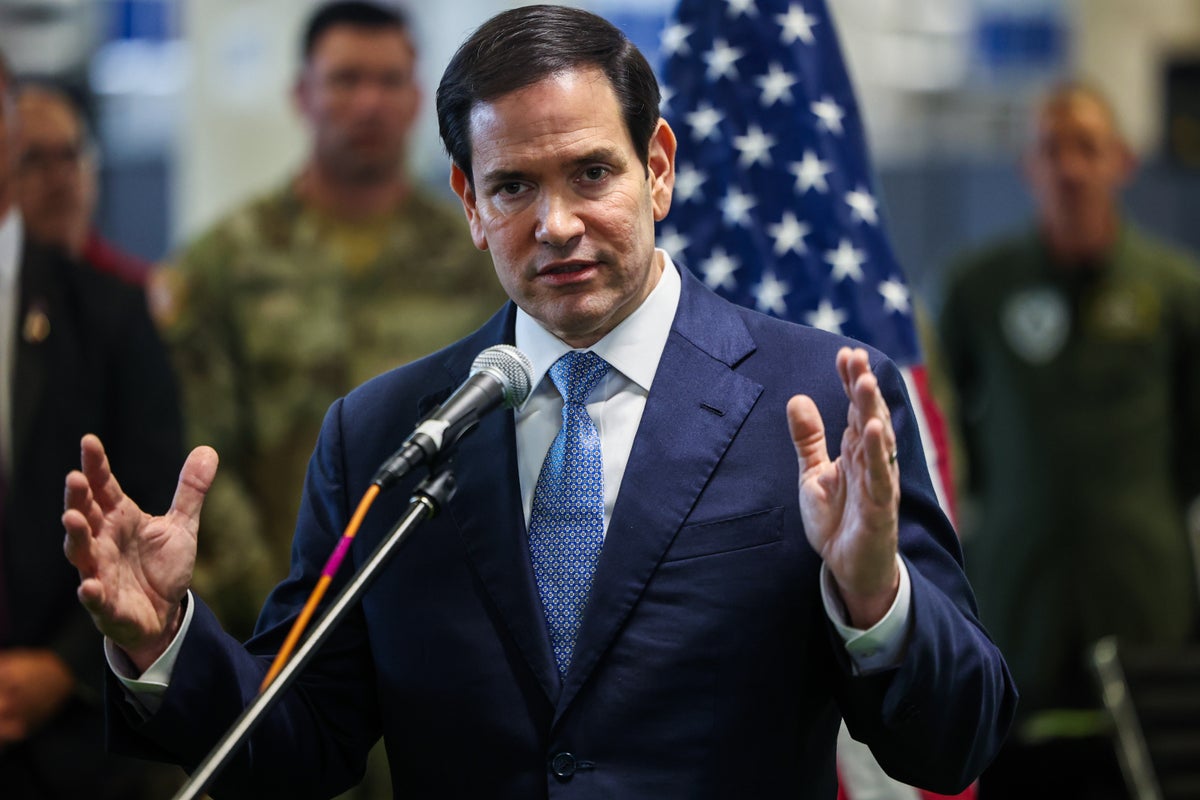
The US Secretary of State has said the UN agency for Palestinians UNRWA is not going to play any role in delivering aid to Gaza under Donald Trump’s ceasefire plan, accusing it of being a “subsidiary of Hamas”.
Marco Rubio said a conglomerate of up to a dozen groups would be involved in aid efforts in Gaza, including from the United Nations and other humanitarian organisations.
“The United Nations is here, they’re on the ground, we’re willing to work with them if they can make it work,” said Rubio during a press conference at the American headquarters in Kiryat Gat. “But not UNRWA. UNRWA became a subsidiary of Hamas.”
Earlier this week the International Court of Justice said that Israel must allow the United Nations Relief and Works Agency for Palestine Refugees (UNRWA) to provide humanitarian assistance to the Palestinian territory. It said that there was no evidence UNRWA has breached impartiality rules, as claimed by Israel.
UNRWA has not directly responded to Rubio’s remarks but posted multiple statements on social media on Friday highlighting the role it has played.
“The International Court of Justice recognised that no organisation can replace UNRWA’s role in supporting the people of Gaza,” one post read. “UNRWA’s presence remains vital to meeting urgent humanitarian needs across the occupied Palestinian territory.”
Israel has not allowed UNRWA to bring in its supplies since March. But the agency continues to operate in Gaza, running health centres, mobile medical teams, sanitation services and school classes for children. It says it has 6,000 trucks of supplies waiting to get in.
During his tour of the centre overseeing the Gaza ceasefire, Rubio touched upon the possibility of the ceasefire breaking down, while declining to say whether Israel would need US ‘permission’ to reopen fighting against Hamas.
He emphasised that the US ceasefire plan is broadly supported in the region, and said that it was the “only plan” on the table at present.
“We’re all committed to making this plan work,” he said. “There is no Plan B. This is the best plan. It’s the only plan. It’s the only one that we think can succeed.”
He stressed that the administration still sees that the plan is “on the way to success”, despite recent strains surrounding the release of hostage remains, the provision of aid into Gaza and Israeli air strikes.
Rubio was the latest in a series of top US officials to visit the center for civilian and military coordination. Vice President JD Vance was there earlier this week where he announced its opening, and envoys Steve Witkoff and Jared Kushner, the president’s son-in-law, were also in Israel.
“I think we have a lot to be proud of in the first 10 days, 11 days, 12 days of implementation, where we have faced real challenges along the way,” said Rubio.
The United States is now seeking support from other allies, especially Gulf Arab nations, to create an international stabilisation force to be deployed to Gaza and train a Palestinian force.
Rubio said US officials were working on possible language to secure a United Nations mandate or other international authorisation for the force in Gaza because several potential participants would require one before they can take part.
He said many countries had expressed interest, and decisions need to be made about the rules of engagement.
He said such countries need to know what they’re signing up for, including “what is their mandate, what is their command, under what authority are they going to be operating, who’s going to be in charge of it, what is their job?”
He also said Israel needs to be comfortable with the countries that are participating.
